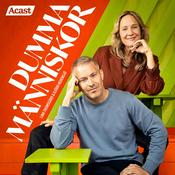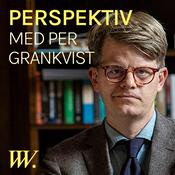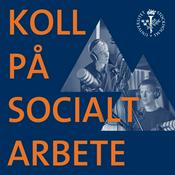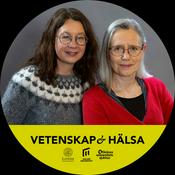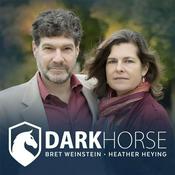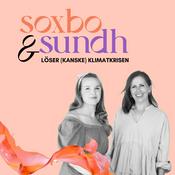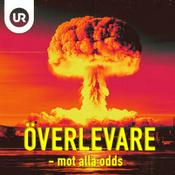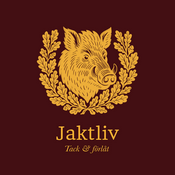16 avsnitt

Making sense of calls for bans and moratoria for solar geoengineering
2025-7-15 | 1 h 1 min.
On 9 April 2025, SRM360 hosted a live discussion on the growing debate surrounding moratoria and bans on solar geoengineering. Listen to the episode to explore the differences between bans and moratoria, the pros and cons of each, and policy discussions on the horizon with expert panelists Josh Horton, Julie Vinders, Joe Sonka, and Craig Segall. Note, since this recording the U.S. EPA published a new resource on geoenineering.Why is this relevant now?European Commission Review: The Commission is considering proposals for moratoria on certain SRM activities that were recommended by scientific advisors.State-Level Bans in the US: More than 25 US states have proposed or adopted a ban on geoengineering.Divided academic viewpoints: An influential group of academics have called for a non-use agreement, which includes a ban on outdoor experiments.Climate Reflections is a production of SRM360, a non-profit knowledge hub supporting an informed, evidence-based discussion of sunlight reflection methods. For more information and the latest research on SRM, visit SRM360.org.Follow us to stay updated on the latest episodes:LinkedIn: SRM360-orgTwitter/X: SRM360_orgYouTube: SRM360orgBluesky: SRM360And subscribe, wherever you get your podcasts!

Field Experiments in SRM
2025-6-03 | 23 min.
In May 2025, the UK's Advanced Research and Invention Agency (ARIA) announced its initial round of awards for their "Exploring Climate Cooling" programme. The programme will ultimately dedicate £56.8 million to fund sunlight reflection methods research. Some of that funding will go towards field experiments. There have been only a few SRM field experiments to date, and some have been cancelled due to public pressure. In this episode, we explore what SRM field experiments have taken place, how they've informed scientific knowledge of SRM, talk with some of the scientists leading those experiments, and explore how outdoor field experiments of SRM should or could be governed. This episode features interviews with:David Keith, professor of Geophysical Sciences at the University of Chicago and faculty director of the Climate Systems Engineering Initiative (CSEI), an interdisciplinary academic research cluster focused on climate interventionsJohn Moore, glaciologist and research professor at University of Lapland in Finland.Daniel Harrison, associate professor in the National Marine Science Center at Southern Cross University in Australia and scientific lead for the cooling and shading subprogram of the Reef Restoration and Adaptation Program (RRAP), which includes outdoor marine cloud brightening experiments.Jan MacDonald, professor of Environmental and Climate Law at the University of Tasmania in Australia.Shuchi Talati, governance expert and executive director of the Alliance for Just Deliberation of Solar Geoengineering.Climate Reflections is a production of SRM360, a non-profit knowledge hub supporting an informed, evidence-based discussion of sunlight reflection methods. For more information and the latest research on SRM, visit SRM360.org.Follow us to stay updated on the latest episodes:LinkedIn: SRM360-orgTwitter/X: SRM360_orgYouTube: SRM360orgBluesky: SRM360And subscribe, wherever you get your podcasts!

Live Podcast: SRM and Africa - perspectives from the continent
2025-5-14 | 49 min.
Africa is home to many of the world’s least developed nations and its population is rapidly growing, making it one of the most climate vulnerable regions in the world. As such, Africa has much to gain, or lose, from the potential deployment of SRM. SRM360 hosts a live panel discussion at the Degrees 2025 Global Forum in South Africa with leading African experts about the future of Africa, the climate outlook, and the potential and risks of SRM for the continent.Moderator: Pete Irvine (SRM360.org & University of Chicago)Panelists:Babatunde Abiodun, University of Cape Town, South AfricaErnest Ofori, Green Africa Youth Organization, GhanaNana Ama Browne Klutse, Environmental Protection Authority, GhanaPortia Adade Williams, Science and Technology Policy Research Institute, GhanaClimate Reflections is a production of SRM360, a non-profit knowledge hub supporting an informed, evidence-based discussion of sunlight reflection methods. For more information and the latest research on SRM, visit SRM360.org.Follow us to stay updated on the latest episodes:LinkedIn: SRM360-orgTwitter/X: SRM360_orgYouTube: SRM360orgBluesky: SRM360And subscribe, wherever you get your podcasts!

What is Marine Cloud Brightening (MCB)?
2025-5-06 | 29 min.
In this episode of Climate Reflections: The SRM360 Podcast, host Dr. Pete Irvine discusses the sunlight reflection method (SRM) known as Marine Cloud Brightening (MCB), which involves spraying sea salt particles below the cloud base to brighten clouds and reflect sunlight. The episode explores two different MCB field experiments by scientists, and discusses the technical, scientific, and ethical challenges of MCB. Joining us to explain Marine Cloud Brightening are experts Dr. Isabelle Steinke, Assistant Professor for Climate Engineering at TU Delft, Dr. Michael Diamond, Assistant Professor in Earth, Ocean, and Atmospheric Science at Florida State University, and Dr. Daniel Harrison, Oceanographer and Engineer at the National Marine Science Centre of Southern Cross University and Cooling and Shading Leader for the Reef Restoration and Adaptation Program in Australia.Climate Reflections is a production of SRM360, a non-profit knowledge hub supporting an informed, evidence-based discussion of sunlight reflection methods. For more information and the latest research on SRM, visit SRM360.org.Follow us to stay updated on the latest episodes:LinkedIn: SRM360-orgTwitter/X: SRM360_orgYouTube: SRM360orgBluesky: SRM360And subscribe, wherever you get your podcasts!

News Roundup: major reports on SRM from Germany and the US, how to assess risk, and how emotions impact SRM opinions
2025-4-15 | 33 min.
To discuss SRM news over the past month, we're joined by Chad Baum, behavioral scientist and Assistant Professor at Aarhus University in Denmark, and Julie Vinders, Lawyer and Senior Research Analyst at Trilateral Research in the UK. We'll talk through the German Environmental Agency's recent policy report on SRM, as well as the Council on Foreign Relations' Climate Realism Initiative, that considers SRM as one of many interventions to "avert catastrophic global climate change". We'll also discuss Julie's article on how the precautionary principle as understood under EU law applies to SRM, and Chad's recent international study of over 30,000 people examining how emotions impact public support for climate interventions. Climate Reflections is a production of SRM360, a non-profit knowledge hub supporting an informed, evidence-based discussion of sunlight reflection methods. For more information and the latest research on SRM, visit SRM360.org.Follow us to stay updated on the latest episodes:LinkedIn: SRM360-orgTwitter/X: SRM360_orgYouTube: SRM360orgBluesky: SRM360And subscribe, wherever you get your podcasts!
Fler podcasts i Vetenskap
Trendiga poddar i Vetenskap
Om Climate Reflections: The SRM360 Podcast
Lyssna på Climate Reflections: The SRM360 Podcast, Vetenskapligt Talat och många andra poddar från världens alla hörn med radio.se-appen
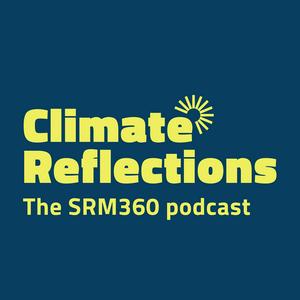
Hämta den kostnadsfria radio.se-appen
- Bokmärk stationer och podcasts
- Strömma via Wi-Fi eller Bluetooth
- Stödjer Carplay & Android Auto
- Många andra appfunktioner
Hämta den kostnadsfria radio.se-appen
- Bokmärk stationer och podcasts
- Strömma via Wi-Fi eller Bluetooth
- Stödjer Carplay & Android Auto
- Många andra appfunktioner


Climate Reflections: The SRM360 Podcast
ladda ner appen,
börja lyssna.






